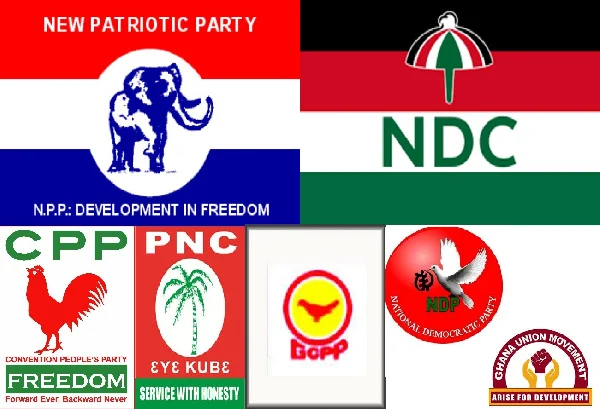
Over the years, successive governments in Ghana have invested significant resources in programs and projects aimed at promoting socio-economic development and improving citizens’ well-being. However, the implementation of many of these initiatives has either failed or been abandoned. Despite their importance, there is limited research addressing the underlying causes of these failures—particularly the ways in which politics and culture influence program implementation and abandonment.
Partisan politics—characterized by strong loyalty to one’s political party, rigid adherence to party ideology, and reluctance to compromise—offers a useful lens through which to examine the political dynamics behind ineffective implementation and abandonment. Drawing on political theory and literature on partisanship, this study explores how partisan politics shapes governance failures in Ghana.
Our analysis identifies three primary causal mechanisms:
-
Political Culture
-
Political Corruption
-
Poor Planning and Implementation
These factors are deeply intertwined with the partisan landscape in Ghana and collectively undermine national unity and sustainable development.
Tensions in Government Communication: Public Information vs. Party Promotion
A central challenge in modern governance is the tension between informing the public and promoting the ruling party’s agenda. Government communication serves both democratic and political functions, which can often be at odds.
1. Informational Needs vs. Political Goals
-
Informing the Public: Governments have a duty to keep citizens informed about policies, decisions, and public services. This supports transparency, accountability, and civic engagement.
-
Promoting the Party’s Agenda: Political parties seek to maintain power by building support, justifying their actions, and shaping public opinion in their favor.
2. Risks of Bias and Manipulation
-
Selective Disclosure: Governments may highlight only the benefits of their policies while minimizing or ignoring shortcomings.
-
Framing and Language: Strategic use of language can influence how policies are perceived, often favoring the party’s image.
-
Propaganda and Disinformation: In extreme cases, communication becomes a tool for spreading false or misleading narratives to manipulate public perception.
3. Barriers to Independent Media
-
Financial Dependency: Media outlets that rely on government advertising or politically aligned businesses may hesitate to criticize the government.
-
Censorship and Intimidation: Journalists may face threats or suppression, limiting independent reporting and critical oversight.
4. Transparency and Accountability
-
Public Trust: When citizens perceive government communication as biased or deceptive, trust in institutions deteriorates.
-
Good Governance: Effective governance requires honest, transparent, and inclusive communication to facilitate informed public discourse and participation.
Governance vs. Government: A Conceptual Clarification
-
Government refers to the formal institutions and processes through which political authority is exercised (e.g., executive, legislature, judiciary).
-
Governance, on the other hand, encompasses a broader process involving various actors—including NGOs, media, and the private sector—in decision-making and policy implementation.
Perspective: Good governance extends beyond the functions of government. It is measured by key principles such as transparency, accountability, participation, effectiveness, and rule of law.
Political Party Communication in Government
When a political party assumes power, its communication priorities shift from campaigning to governance. The party’s message often becomes entwined with state communication, raising ethical and legal concerns. Key objectives during governance communication include:
-
Justifying policy decisions
-
Managing public perception
-
Mobilizing support
-
Responding to crises
The overlap between state and party communication creates a delicate balance, often blurring the lines between public service messaging and political propaganda.
Communication Strategy and Ethical Considerations
A coherent communication strategy in government involves:
-
Framing: Presenting issues to reflect party values and goals.
-
Narrative Building: Creating consistent themes (e.g., “development,” “stability”).
-
Audience Targeting: Tailoring messages to different regions or demographic groups.
-
Feedback Loops: Using polls, media analysis, and public sentiment to guide messaging.
However, this raises ethical issues:
-
Blurred Lines: The misuse of state resources for party messaging undermines neutrality.
-
Democratic Accountability: In a democracy, government communication should prioritize public interest over partisan gain.
-
Erosion of Trust: Over-politicization can alienate citizens and weaken democratic institutions.
Case-Based Perspective
-
In authoritarian regimes, the line between party and state is often nonexistent, with government communication serving as an extension of the ruling party.
-
In liberal democracies, legal frameworks typically regulate government communication—especially during election periods—to maintain fairness and transparency.
Conclusion
Partisan politics plays a significant role in shaping how government programs are implemented, communicated, and ultimately sustained or abandoned. In Ghana, the entanglement of party politics with state communication and development policy undermines effective governance. Addressing this challenge requires strengthening institutional checks, promoting nonpartisan public communication, and fostering a political culture that prioritizes national development over partisan advantage.




